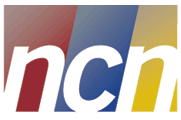

|
|
|
|
|
|
|
|
|
|
|
|
|
|
|
|
|
|
Brain Ischemia Research: from Benchside to BedsideKusum Kumar, MD; Bal Krishna Sharma, PhD; A. Thomas Evans, DVMREAD FULL ARTICLE PDFPublished: 19 October 1998 The status of stroke care in the 1990s has been somewhat similar to that of the management of myocardial infarction in the 1950s, when the latter was not regarded as an emergency. Stroke needs to be considered an emergency, with patients brought for medical help immediately, and therapy geared toward minimizing brain damage from ischemia started without delay. Although the incidence of stroke has declined in the past decades in the industrialized world, mainly due to better management of risk factors, treatment of stroke is still evolving. Experimental research has made impressive strides in understanding mechanisms involved in ischemic brain injury, and opened avenues to new therapeutic strategies targeted at reestablishing blood flow and limiting the extent of tissue necrosis. Clinical trials are in progress testing newer agents; for example, antioxidant agents, glutamate antagonists, anti-inflammatory agents, anticoagulants, and thrombolytic drugs, to name a few. The most important stride has been the early administration of rTPA (tissue plasminogen activator). The improvements noted in experimental studies of focal brain ischemia focus on the prevention of pathological processes affecting brain regions surrounding the ischemic core, namely, regions in which blood flow and oxygenation are not critically diminished. These regions, referred to as penumbra, are functionally impaired but structurally intact, and are therefore salvageable. A number of pathological changes occurring at the molecular level have been characterized in the penumbra in the past few years. The purpose of this paper is to discuss the possible therapeutic impact of recent research.
Keywords: Brain Ischemia, Mechanisms, Management of Stroke
|
|
Copyright © 1996-2000. The MIT Press . All rights reserved. ISSN 1526-8748 |